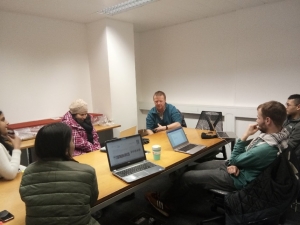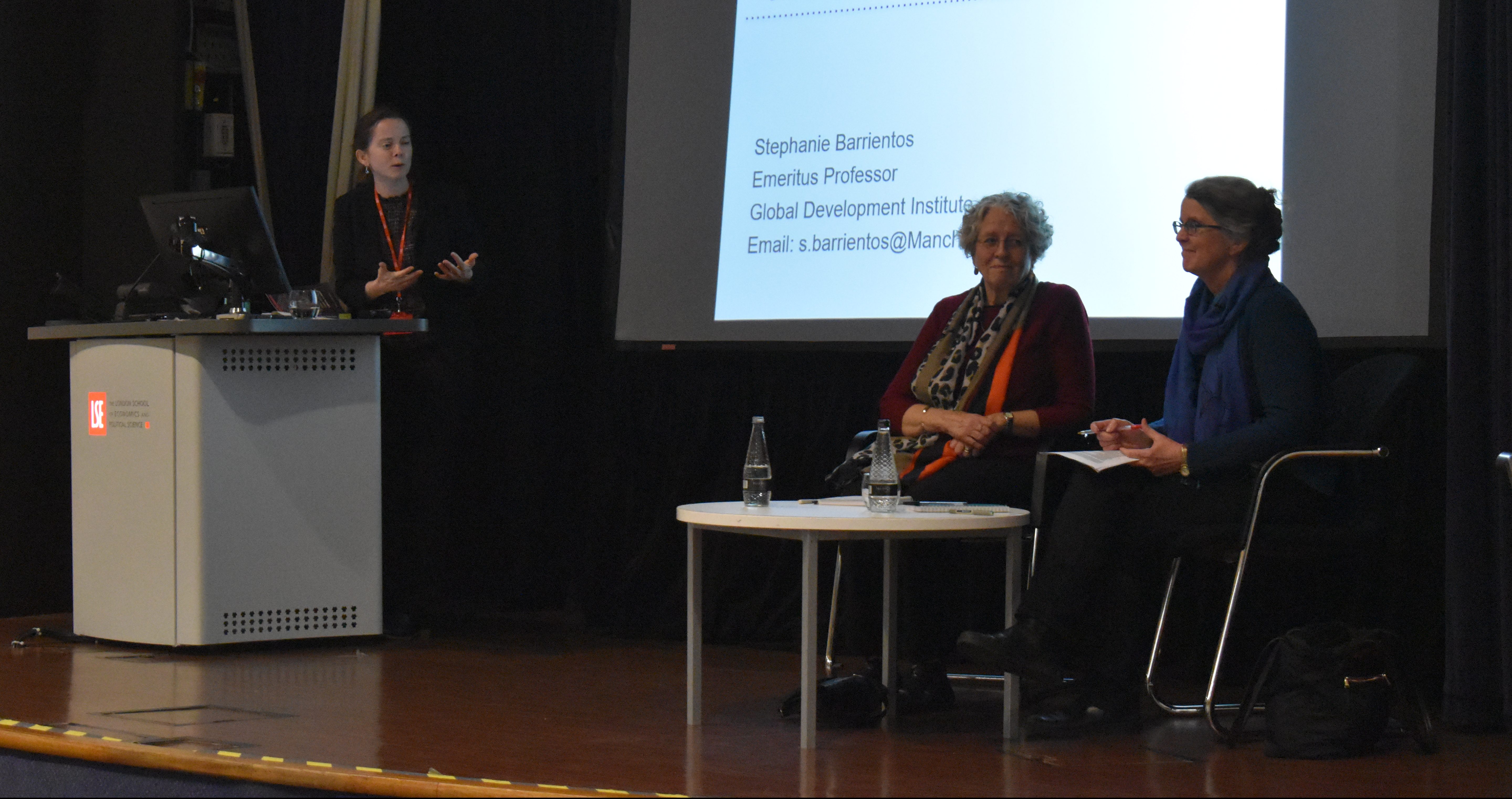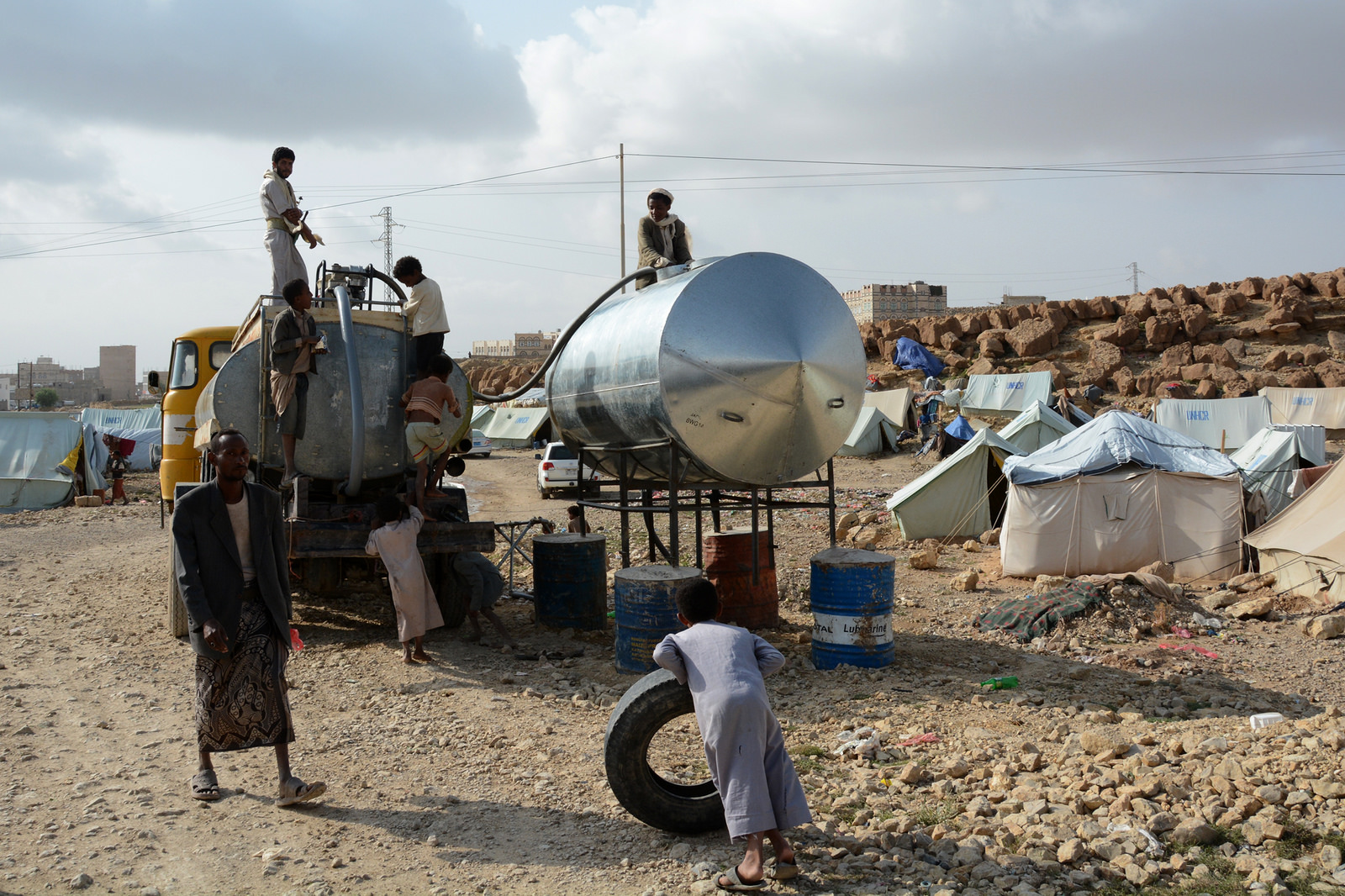Development Studies student Anushna Jha shares with us her list of “10 things to keep in mind whilst blogging” following an intimate blog writing session with professor in practice and blogger Duncan Green (@fp2p).

Last week, we had an interactive session with Professor Duncan Green, who takes our course on Advocacy, Grassroots Activism and Campaign here at the LSE and is Senior Strategic Adviser at Oxfam. The discussion went from asking him about his foray into blogging to challenges faced while working in the arena of international development to the influencing potential of blogs to the do’s and don’ts of blogging. Here are my reflections from the interaction, or things to keep in mind while blogging in this field of international development (most hold relevance to any kind of blogging, though).
- Steer clear of giving out prescriptions
Being pompous on your blog is a big no. People don’t want to read you directing international organisations, states, or policymakers about what they should do and what they shouldn’t. Instead, a well-reasoned (and reasonable) point of view is welcome.
- Take humour seriously
While talking on a theme as complex and contentious as development, it can get rather grim. The key to make this lively and engaging is adding humour in your blogposts. An interesting observation or a funny anecdote can at times convey much more and in a way that’s least offensive. Even when you’re challenging long-held assumptions and beliefs!
- Woo your readers
Blogs are not something that people are ‘supposed’ to read (unlike academic writings, which find mentions on ‘essential reading lists’). Therefore, the onus is on you to make your blog compelling enough for the reader to read through it. And be prepared that despite all your efforts at blogging to the best of your abilities, the time spent reading your blogpost can be as much as a minute or two.
- Don’t put forth a deluge of ideas
Development is an enticing domain. You may have your brain buzzing with opinions and ideas. Don’t give in to the temptation of putting them all down in a single blogpost. Having one (or two) main ideas per post can be a good idea.
- Count your words
The length of a blogpost can be a determinant of whether or not it will be read completely. (A friend admitted that she loses interest in a blog if it’s too long a read, no matter how great the content seems. Many of us do the same.) 400-500 words per post is desirable (given that you would want your readers to read through your post).
- Engage with your readers
I’ve always considered blogging akin to starting a conversation. To keep it going, you need to listen to views other than your own. Asking people about what they think about an issue, having polls on your blog, or requesting for feedback on your ideas can be very beneficial. Both in terms of bringing your readers closer to you, and in getting s sounding board for all your new ideas and propositions.
- Use graphics
To break the monotony of words as well as to give space to other forms of expression on your blog, visuals can be of tremendous help. In fact, they can be very powerful in getting across the message you want to convey. Adding relevant cartoons or comic strips to your blog posts shall only enhance your readers’ experience.
- Give links
You don’t need citations to make your written piece of work worth a sincere read. Inserting links where you think interested readers would find relevant material to delve deeper into the topic you are addressing, or simply to refer to sources you found interesting while researching for your blogpost shall enrich your blog. In fact, a great idea could be to chronicle links to some stimulating articles (or videos) you read and your initial thoughts (or critical analysis- your pick!) of them.
- Don’t be defensive
Feeding the trolls can be very tempting, but you run the risk of being caught in a web of defending your arguments in front of somebody not at all up for a constructive dialogue. In an instance where your words spiral into unintended consequences (or, reveal an aspect of your views you hadn’t given careful thought), the last thing you should do is be defensive. Accept that there will be differences of opinions, embrace that you aren’t correct all the time, and move on. Don’t let one blogpost determine your future blogging prospects. Apologize, if need be, and move on to the next day and a new post.
- Don’t expect one blogpost to change a policy
Finally, recognising the potential power of blogging to influence minds shouldn’t put you in a bubble where you think that one post you write will lead governments to change policies or international norms to transform. As is the case with virtually any kind of change, development is a gradual process. Blogging, if used effectively, can be a crucial drop in the ocean. All you can do is make yours good enough to be counted.
An interesting question that came up during the discussion was on how to avoid exclusion of people who are not on social media. This puts a responsibility on the blogger to try and break out of the social media bubble when s/he is offline. Interacting with people having diverse experiences, beliefs, opinions, and aspirations will help you be more inclusive. Blogging isn’t a fully democratic activity. It primarily represents the voice of the blogger. So, try and incorporate as many tones and tunes as you can.
Anushna Jha (@anushnajha), MSc. in Development Studies, The London School of Economics and Political Science. She blogs at anushnajha.blogspot.com.
The views expressed in this post are those of the author and in no way reflect those of the International Development LSE blog or the London School of Economics and Political Science.






I would likewise accept the substance with more setting will get more consideration. For state, giving models or refering to contextual analyses , giving information graphics will give progressively substance and increment the crowd curiosity ..